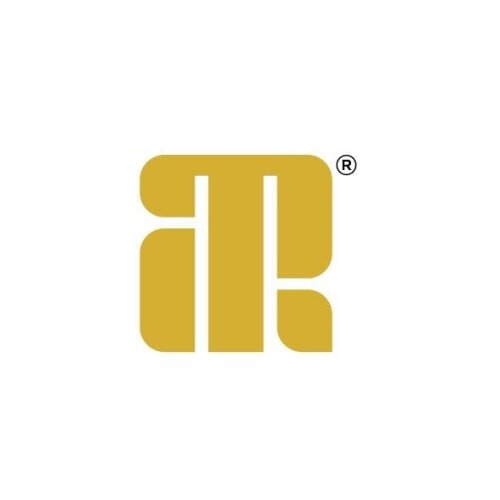Best Sanctions & Export Controls Lawyers in Kuwait
Share your needs with us, get contacted by law firms.
Free. Takes 2 min.
Or refine your search by selecting a city:
List of the best lawyers in Kuwait
About Sanctions & Export Controls Law in Kuwait
Sanctions and export controls refer to laws and regulations that restrict or regulate the trade, transfer, or movement of goods, technology, and services for reasons including national security, foreign policy, and international obligations. In Kuwait, these laws are influenced by domestic legislation as well as commitments to international organizations such as the United Nations and the Gulf Cooperation Council. Kuwaiti authorities enforce various export controls and sanctions, particularly concerning sensitive goods, dual-use items, and trade with sanctioned countries or entities. Companies and individuals operating in Kuwait must be cautious to ensure compliance with these regulations to avoid severe penalties.
Why You May Need a Lawyer
Legal advice in the field of sanctions and export controls is often necessary due to the complexity and seriousness of these laws. Some common situations where individuals or businesses may require legal help include:
- Understanding which products, technology, or services are subject to Kuwait’s export control laws
- Navigating the process of applying for export licenses or permits
- Dealing with government investigations or allegations of sanctions violations
- Conducting due diligence on international partners or customers
- Understanding the impact of international sanctions on business operations
- Challenging administrative decisions related to denied licenses or permits
- Reviewing contracts to ensure sanctions compliance
- Implementing effective compliance programs within your organization
Engaging a lawyer who understands both Kuwaiti law and international obligations is crucial to protect your interests and avoid costly mistakes.
Local Laws Overview
Kuwait’s legal framework on sanctions and export controls primarily consists of national laws, ministerial decrees, and regulations intended to protect national security, prevent the proliferation of weapons, and comply with international treaties. Some key aspects include:
- Export Controls: Kuwait enforces controls over the export and re-export of certain goods, such as weapons, military equipment, dual-use technology, and items with strategic significance. Exporters may need to acquire licenses, especially if products are on designated control lists.
- Sanctions: Kuwait adheres to UN sanctions regimes and sometimes imposes its own sanctions on particular countries and entities. This includes restrictions or prohibitions on trade, financial transactions, and the provision of services.
- Enforcement: The Kuwaiti authorities have the right to inspect shipments, freeze assets, and take enforcement action against individuals or companies found violating sanctions or export controls.
- Customs and Border Controls: Customs authorities play a significant role in monitoring and intercepting goods that may be subject to controls or sanctions. Documentation and declarations must be accurate and complete.
- Penalties: Violations can result in significant fines, confiscation of goods, suspension of business activities, and even criminal prosecution.
Staying informed and compliant with both local and international requirements is essential for anyone involved in cross-border trade or investment in Kuwait.
Frequently Asked Questions
What are sanctions and export controls?
Sanctions are restrictive measures imposed by authorities to achieve foreign policy or security objectives. Export controls are regulations that restrict the trade of specific goods, technology, or services for security, political, or economic reasons.
Who enforces sanctions and export controls in Kuwait?
Several government bodies enforce these regulations, including the Ministry of Commerce and Industry, the Ministry of Interior, the Kuwait General Administration of Customs, and other relevant ministries.
Does Kuwait comply with international sanctions?
Yes, Kuwait implements UN Security Council resolutions on sanctions and often aligns its policies with those of the Gulf Cooperation Council and other international partners.
What goods are usually subject to export controls?
Items typically controlled include weapons, military and dual-use items, technology that could be used for military purposes, and certain sensitive materials or chemicals.
Do I need a license to export goods from Kuwait?
If the goods, technology, or services fall under controlled categories, you must obtain an export license from the relevant Kuwaiti authorities before proceeding.
What are the consequences of violating sanctions or export controls laws?
Violations can lead to fines, confiscation of goods, denial of export privileges, suspension of business operations, and possible criminal charges.
How do I verify if my business partner or customer is subject to sanctions?
You should conduct due diligence by checking official sanctions lists maintained by the UN, the Kuwaiti government, and other international bodies. Legal counsel can assist with comprehensive checks.
Can sanctions affect personal bank accounts?
Yes, sanctions can lead to the freezing of personal or business accounts if you are dealing with sanctioned persons, entities, or countries.
What should I do if my shipment is delayed or seized at customs?
Contact the customs authorities for clarification and seek legal advice immediately. A lawyer can help you resolve the issue and ensure compliance with regulations moving forward.
How can a company ensure ongoing compliance with sanctions and export controls?
Implement regular training, conduct risk assessments, establish clear internal policies, and consult legal experts to stay updated with changing laws and obligations.
Additional Resources
The following resources can be helpful for individuals or businesses needing information or assistance regarding sanctions and export controls in Kuwait:
- Ministry of Commerce and Industry: Oversees licensing, trade regulations, and compliance matters.
- Kuwait General Administration of Customs: Responsible for customs procedures and enforcement of import-export rules.
- Central Bank of Kuwait: Provides guidance on financial sanctions and anti-money laundering regulations.
- United Nations Security Council Sanctions Committees: Offers information on current international sanctions that Kuwait observes.
- Embassies and Trade Missions: Can provide advice on country-specific restrictions or sanctions impacting trade with certain nations.
- Qualified legal advisors and law firms: Specialize in sanctions, compliance, and export controls for local and international clients.
Next Steps
If you believe you need legal assistance with sanctions or export control issues in Kuwait, consider the following steps:
- Gather relevant documents, such as contracts, shipment records, or official correspondence.
- Prepare a summary of your situation, including specific questions or concerns.
- Reach out to a law firm or legal advisor experienced in sanctions and export controls in Kuwait.
- Schedule a consultation to discuss your case in detail, review your options, and develop a compliance strategy.
- Implement the recommended measures and stay informed about changes in laws or regulations.
Proactive engagement with legal advisors not only minimizes risks but also helps your business thrive in compliance with Kuwaiti and international law.
Lawzana helps you find the best lawyers and law firms in Kuwait through a curated and pre-screened list of qualified legal professionals. Our platform offers rankings and detailed profiles of attorneys and law firms, allowing you to compare based on practice areas, including Sanctions & Export Controls, experience, and client feedback.
Each profile includes a description of the firm's areas of practice, client reviews, team members and partners, year of establishment, spoken languages, office locations, contact information, social media presence, and any published articles or resources. Most firms on our platform speak English and are experienced in both local and international legal matters.
Get a quote from top-rated law firms in Kuwait — quickly, securely, and without unnecessary hassle.
Disclaimer:
The information provided on this page is for general informational purposes only and does not constitute legal advice. While we strive to ensure the accuracy and relevance of the content, legal information may change over time, and interpretations of the law can vary. You should always consult with a qualified legal professional for advice specific to your situation.
We disclaim all liability for actions taken or not taken based on the content of this page. If you believe any information is incorrect or outdated, please contact us, and we will review and update it where appropriate.
Browse sanctions & export controls law firms by city in Kuwait
Refine your search by selecting a city.














